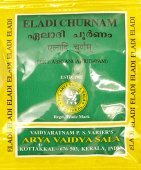Sprikka, Spṛkkā: 9 definitions
Introduction:
Sprikka means something in Hinduism, Sanskrit, biology. If you want to know the exact meaning, history, etymology or English translation of this term then check out the descriptions on this page. Add your comment or reference to a book if you want to contribute to this summary article.
The Sanskrit term Spṛkkā can be transliterated into English as Sprkka or Sprikka, using the IAST transliteration scheme (?).
In Hinduism
Ayurveda (science of life)
Nighantu (Synonyms and Characteristics of Drugs and technical terms)
Source: WorldCat: Rāj nighaṇṭuSpṛkkā (स्पृक्का) is another name for Lajjālu, a medicinal plant identified with Mimosa pudica Linn. or “sensitive plant” from the Fabaceae or “legume” family of flowering plants, according to verse 5.103-106 of the 13th-century Raj Nighantu or Rājanighaṇṭu. The fifth chapter (parpaṭādi-varga) of this book enumerates sixty varieties of smaller plants (kṣudra-kṣupa). Together with the names Spṛkkā and Lajjālu, there are a total of twenty-two Sanskrit synonyms identified for this plant.
Toxicology (Study and Treatment of poison)
Source: Shodhganga: Kasyapa Samhita—Text on Visha ChikitsaSpṛkkā (स्पृक्का) refers to an herbal ingredient which is included in a (snake) poison antidote recipe, according to the Kāśyapa Saṃhitā: an ancient Sanskrit text from the Pāñcarātra tradition dealing with both Tantra and Viṣacikitsā—an important topic from Āyurveda which deals with the study of Toxicology (Viṣavidyā or Sarpavidyā).—In the Añjana or Collyrium segment of the eighth Adhyāya, Kāśyapa prescribes eight types of permutation and combination of herbs that effectively arrest poison. According to Kāśyapasaṃhitā (verse VIII.38)—“The oil extracted from Śilāla, Candana, Kuṣṭha, Abhraka dipped in Tulasī and heated with a little of Māṃsī, Mustard and Spṛkkā soaked in Hiṅgu water form a group of poison-alleviating drugs to make an añjana”.

Āyurveda (आयुर्वेद, ayurveda) is a branch of Indian science dealing with medicine, herbalism, taxology, anatomy, surgery, alchemy and related topics. Traditional practice of Āyurveda in ancient India dates back to at least the first millenium BC. Literature is commonly written in Sanskrit using various poetic metres.
Biology (plants and animals)
Source: Wisdom Library: Local Names of Plants and DrugsSprkka in the Sanskrit language is the name of a plant identified with Melilotus officinalis (L.) Pall. from the Fabaceae (Pea) family. For the possible medicinal usage of sprkka, you can check this page for potential sources and references, although be aware that any some or none of the side-effects may not be mentioned here, wether they be harmful or beneficial to health.
Source: Google Books: CRC World Dictionary (Regional names)1) Sprkka in India is the name of a plant defined with Adenosma indianum in various botanical sources. This page contains potential references in Ayurveda, modern medicine, and other folk traditions or local practices It has the synonym Pterostigma capitatum Bentham (among others).
2) Sprkka is also identified with Anisomeles malabarica It has the synonym Ajuga fruticosa Roxb. (etc.).
3) Sprkka is also identified with Delphinium zalil.
4) Sprkka is also identified with Trigonella balansae It has the synonym Trifolium corniculatum L. (etc.).
Example references for further research on medicinal uses or toxicity (see latin names for full list):
· Systema Naturae, ed. 10
· Curtis’s Botanical Magazine (2071)
· Diagnoses plantarum orientalium novarum (1856)
· Scrophulariaceae (2)
· Flora Reipublicae Popularis Sinicae (1963)
· Glimpses in Plant Research (1998)
If you are looking for specific details regarding Sprkka, for example extract dosage, side effects, diet and recipes, pregnancy safety, chemical composition, health benefits, have a look at these references.

This sections includes definitions from the five kingdoms of living things: Animals, Plants, Fungi, Protists and Monera. It will include both the official binomial nomenclature (scientific names usually in Latin) as well as regional spellings and variants.
Languages of India and abroad
Sanskrit dictionary
Source: DDSA: The practical Sanskrit-English dictionarySpṛkkā (स्पृक्का).—Trigonella Corniculata (piṇḍakā).
Source: Cologne Digital Sanskrit Dictionaries: Shabda-Sagara Sanskrit-English DictionarySpṛkkā (स्पृक्का).—f.
(-kkā) A gramineous plant, (Trigonella corniculata.) E. spṛś to touch, kak aff., and śa changed to ka, form irr.; also pṛkkā .
Source: Cologne Digital Sanskrit Dictionaries: Monier-Williams Sanskrit-English DictionarySpṛkkā (स्पृक्का):—f. Trigonella Corniculata, [Suśruta; Varāha-mihira’s Bṛhat-saṃhitā]
Source: Cologne Digital Sanskrit Dictionaries: Yates Sanskrit-English DictionarySpṛkkā (स्पृक्का):—(kkā) 1. f. A gramineous plant.
[Sanskrit to German]
Sanskrit, also spelled संस्कृतम् (saṃskṛtam), is an ancient language of India commonly seen as the grandmother of the Indo-European language family (even English!). Closely allied with Prakrit and Pali, Sanskrit is more exhaustive in both grammar and terms and has the most extensive collection of literature in the world, greatly surpassing its sister-languages Greek and Latin.
See also (Relevant definitions)
Ends with: Visprikka.
Full-text: Prikka, Eladi, Upanaha, Mohini, Abhra, Sprish, Hingvambu, Abhraka, Shilala, Vrishcika, Lajjalu, Kushtha, Sukumara, Pishuna, Sugandha.
Relevant text
Search found 7 books and stories containing Sprikka, Spṛkkā, Sprkka; (plurals include: Sprikkas, Spṛkkās, Sprkkas). You can also click to the full overview containing English textual excerpts. Below are direct links for the most relevant articles:
Rasa Jala Nidhi, vol 4: Iatrochemistry (by Bhudeb Mookerjee)
Part 2 - Dietary prescriptions < [Chapter I - General health prescriptions]
Matangalila and Hastyayurveda (study) (by Chandrima Das)
The Agni Purana (by N. Gangadharan)
Brihat Samhita (by N. Chidambaram Iyer)
Sushruta Samhita, volume 1: Sutrasthana (by Kaviraj Kunja Lal Bhishagratna)
Amarakoshodghatana of Kshirasvamin (study) (by A. Yamuna Devi)
Related products



